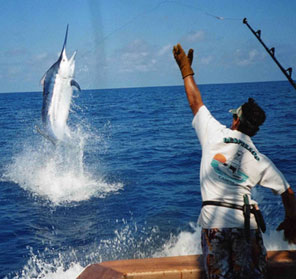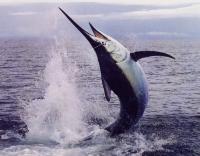
Costa Rica sport fishing represents approximately 27% of the country’s income generated through tourism. Recognizing the importance of the Costa Rica’s sustainable tourism initiative, several hotels have agreed to support the elimination of the consumption of particular species of endangered fish.
You are going to love staying at one of our beautiful vacation villas!
Hotel chain signs sustainable tourism agreement
The hotel chain Hilton Worldwide (Puntarenas Double Tree Resort, Garden Inn, Liberia Airport, Papagayo Resort and Spa and San Jose Double Tree Cariari) have signed an agreement with the Costa Rican Federation of Tourism Fishing (Federación Costarricense de Pesca Turística)
The hotel chain has agreed to remove Marlin and Sailfish from their restaurant menus to ensure their conservation. “We are proud to be part of a small change that will have a great impact on the tourism and health of our guests as some studies indicates that both species have high mercury content. This initiative is a socially responsible commitment that we have agreed to voluntarily,” said Laura Castagini of the Double Tree Resort, Cariari.
The general manager, Ricardo Rodriguez for the Double Tree Resort in Puntarenas, added “As we are a beach resort located in the fishing area of Puntarenas we should participate in this proposal that aims to protect sport fishing.”
Supporting sustainable Costa Rica sport fishing practices
The Hilton hotel already has a clearly defined policy on ensuring endangered species of fish are not on their restaurant menu, including

the Vietnamese catfish and shark.
For Enrique Guier, executive director of the Costa Rican Federation of Tourism the protection of these species strengthens the sustainable tourism practices of the country. “Costa Rica sport fishing is a sustainable tourist activity because it does not exhaust the resource, it respects the environment and the species involved as it is operated under a catch and release policy. This sector creates 63,000 jobs, a 599 million dollar income every year, which contributes to 2.13% to Costa Rica’s GDP.”
